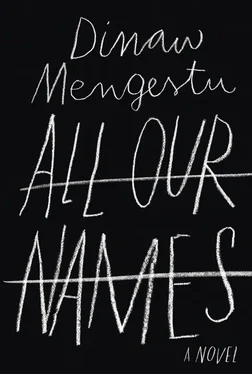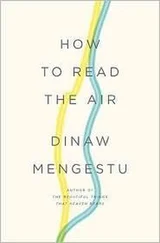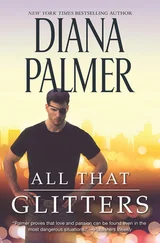We stopped in front of the Hancock. Isaac wanted to see it from multiple angles, so we crossed the street, moved to various corners, and craned our necks to stare up the shiny black exterior.
“It is amazing,” he said.
The awe was genuine. I wanted to know how he sustained it. We stood near the main entrance and rubbed our hands against the exterior. It was warm, polished; I wanted to say it was softer than I expected.
“Should we go inside?”
He shook his head.
“We can’t appreciate it from in there,” he said.
Isaac took my hand.
“Let’s walk,” he said.
We hesitated, looking at our hands, not each other, then gathered our strength and moved forward. We walked. It didn’t feel like a victory over anything, but I was proud and, to an equal degree, scared. After walking one block like that, I was grateful for the feeling of his hand in mine, and even for the anxiety that came with it. After two more blocks, the gratitude had turned to sorrow that we hadn’t had this sooner. All this time, I thought, we’ve been at best only half of what was possible.
I wished my mother could have seen us. I wished David were watching from around the corner.
“Are you okay?”
I wasn’t crying, but the view ahead was blurred.
“I’m great. Wonderful,” I said.
I squeezed his hand hard. He locked his fingers around mine. As long as we continued walking, I was certain that nothing could break us.
The light ahead turned red just as we reached the intersection. We slowed, and as soon as we came to a stop, a crowd formed around us. We were at the front of the pack, which was better than being in the middle, but still we were exposed. I noticed right away that the man next to Isaac and the woman standing closest to me were staring at us, and of course they weren’t alone. I kept my head up without looking at anyone long enough to read their expressions. I knew what was there — anger, pity, contempt, maybe even envy — but I was convinced that there must have also been a touch of wonder, maybe even awe at the sight of us.
When the light turned green, Isaac held me back so we were the last to cross.
“Where should we go next?” he asked me.
It was obvious. He had his tower; I had my lake. I pointed straight ahead to it. The city masked its size with trees, and an expressway and more buildings, so that from where we stood the lake looked kiddie-sized in comparison with what we had seen in the car.
“I should tell you now, I don’t know how to swim,” he said.
“Don’t worry,” I told him, “part of my job is to save you from drowning.”
We followed a party of young couples to the end of Michigan Avenue. They were carrying blankets and a picnic basket, and were dressed in sandals, shorts, and lightly patterned summer dresses.
“They’re just like us,” I said, “except we’re better dressed.”
I said it out loud, but I wasn’t speaking to Isaac. I was testing out certain truths and seeing how they held up when they were no longer private.
We descended into the foot tunnel that led underneath Lakeshore Drive and onto the waterfront. There must have been at least three dozen of us in the tunnel — a two-way parade, with the overwhelming majority heading away from the lake. One of the pastel-clad men in front of us roared to hear his echo, and, for no reason other than that we could, we all began to join him, his friends first, until everyone in front of me and behind me, including Isaac, was roaring as we walked. We turned toward each other and roared. We looked up to the ceiling and roared at the cars passing over us. We roared at the people walking back to the city, and they roared back; then, as we neared the end of the tunnel, I roared at the distance opening up before me, at the trees, and then at the beach and lake. I could hear my voice — distinct and, according to Isaac, much more ferocious than all the rest.
“Another thing I love about you,” he said once we were out, “your voice.”
We walked down the tree-lined path that curved back toward the road before abruptly turning straight to the beach and lake. I had seen the beach from the car, but this was going to be the first time I actually stepped foot on one, and I wanted to make the most of the seconds leading up to it. When the view cleared and the sidewalk ended in a burst of sand, I realized I was wrong to have been so anxious in the car. There was nothing to be afraid of. The city simply paused at the water’s edge. It ran alongside the lake for many more miles.
I tried to find a way to say that to Isaac, stopping him just before we reached the sand.
“It doesn’t end as abruptly as I thought,” I said.
I pointed north, to the buildings that continued along the shore. Isaac humored me. He took in the view and pretended that we were talking about architecture.
“Yes,” he said. “The city is much larger than it appears.”
He put his arm around me and tried to lead me onto the sand.
“I read somewhere it’s bad luck to walk on a beach with your shoes on.”
I made that up, but I had every right to: the common sayings and kitchen wisdom I had grown up with weren’t enough. We sat down and pulled off our shoes and socks and buried our feet in the sand, which was harder and colder than I had expected.
“It’s nothing like the Hancock,” I said.
I pointed to the ground so he would know what I was talking about.
I wanted to say something about finding the opposite of what you expected.
“You mean the sand?”
“I thought it would be soft, and gold, maybe white. I thought you could sleep on it, but you can’t. It’s too hard. It’s not the right color.”
“Are you disappointed?”
“No. More like deceived.”
It was a poor choice of words, given our history.
“I am sorry to hear you say that.”
“Not all deceptions are bad,” I added.
He gave a weak half-smile and turned his attention to the sand. He scooped up a handful and rolled it around on his palm.
“What was in your suitcase?” he asked me.
I remembered that he had carried it to the car and must have known as soon as he lifted it that it was almost empty. It was time now to explain why I wanted us to come here.
“You know why I wanted to come to Chicago with you?”
“I can guess.”
“I thought I had a plan. I thought if I was the one who took you away from Laurel you would see there was no point in going back. You’d want to stay here, and I would help you do that.”
“And then what?”
“And then I would promise to come back and visit, but eventually you wouldn’t need me to. You’d make a life on your own here, which was what I was supposed to help you do in the first place.”
“You did more than that.”
“I don’t know if that’s true. There’s only so much room in a town like ours. Helping you leave seemed better than watching us fall apart inside it.”
“I would not let that happen.”
“But maybe I would. Or maybe I’m afraid there is nothing we could do to stop it.”
He placed his foot over mine and pressed them both into the sand.
“I am afraid for us all the time,” he said. “I see the men at the other end of the beach and I worry that soon they will start to walk toward us. I worry — when you leave my house, when you come to it — that someone you know will see you. Until very recently, I worried about what you thought when you woke up. I worried about what I would think when you were asleep. I imagine things much worse than I would want to live with. That is why I packed everything, like you told me to.”
“Because you wanted to leave.”
“No. Not because I wanted to. When Henry taught me how to drive, he said it was so I could leave Laurel when I was ready to. On the day my visa expired, he said, I could drive myself to the airport, park the car, and disappear, or I could keep the car for as long as I needed, and leave when I was ready. ‘I don’t want you to feel trapped there,’ he said. ‘That might be just as bad as anything you’ve gone through.’ That was when I told him I had met you. He was careful. All he said was to be honest with you, and to keep myself grounded, which I didn’t understand. I thought he meant I should not leave the country with you, and so I promised him I would stay grounded. I thought, ‘Why would we leave America when there is so much to see here?’ which was when I decided to buy you those souvenirs. I showed them to Henry before I mailed them. He said, ‘God bless you if you make it to one of those places.’
Читать дальше












